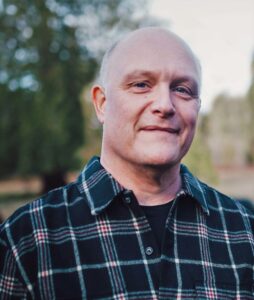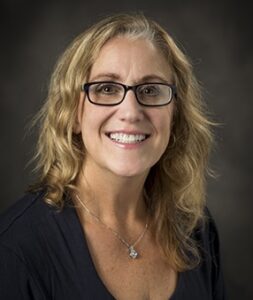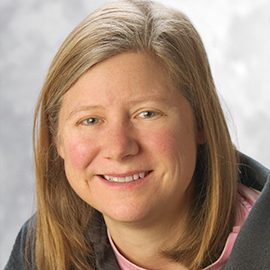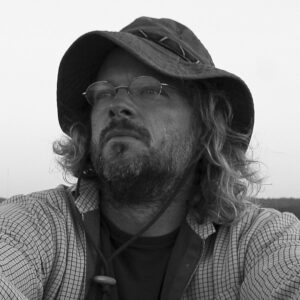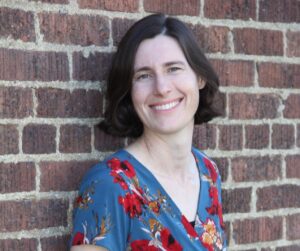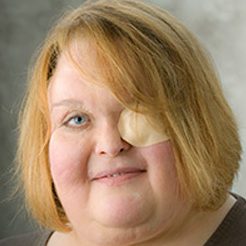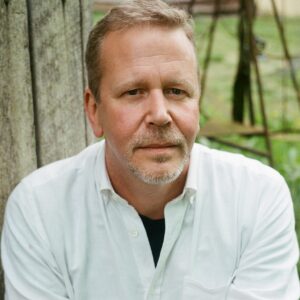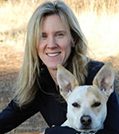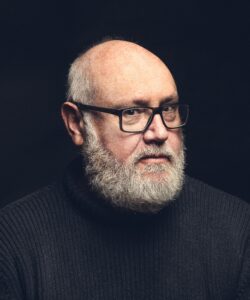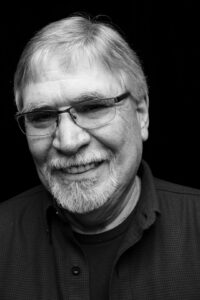About
Jonathan Johnson’s poems have been anthologized in Best American Poetry, published in recent issues of Ploughshares, Southern Review, Witness, Prairie Schooner, Poetry Northwest, New Ohio Review, Missouri Review and Gettysburg Review, and read on NPR’s Writer’s Almanac. His books include the poetry collections Mastodon, 80% Complete (Carnegie Mellon, 2001), In the Land We Imagined Ourselves (Carnegie Mellon 2010), and May Is an Island (Carnegie Mellon 2018); and the memoirs, Hannah and the Mountain (Nebraska, 2005) and The Desk on the Sea (Wayne State, 2019). Ode, his play about John Keats and Fanny Brawne, was produced as part of the GetLit! Literary Festival, and his fiction has appeared recently in Ploughshares, Bellevue Literary Review, and Missouri Review. Johnson migrates between the Northwest; his hometown of Marquette, Michigan; and his ancestral village of Glenelg in the Scottish Highland where his cousins are still crofters.
In addition to his regular course load, Jonathan teaches a unique summer writing class from Yellowstone National Park. All students in previous sections of this course have watched wolves. Other observations have included wild trout, grizzly bears, falcons, mountain goats, and bison (lots and lots of bison). The course is designed to be a peak life experience that inspires writers to observe their world closely, to conduct field research, and to write from their own experiences for years to come.
Interviews with Johnson can be read at: http://www.theswampmagazine.com/jonathan-johnson-interview and http://www.towncreekpoetry.com/SPR10/JJ_INTERVIEW.htm
Teaching Philosophy
I believe the most important quality a teacher of writing can possess is the ability to imaginatively inhabit a student’s work, to read and consider and comment on it as if from the inside. I try to let each piece I read teach itself to me, show me its methods and aesthetic. Only then do I attempt to comprehend and articulate its potentials—realized and unrealized—and offer my comments. This sort of reading often requires the ability and willingness to set aside much of my own literary agenda and taste and adopt, at least partly, the agenda and taste of the student. I think of myself much less as an editor of students’ writing then as a guide, taking them through their own words, helping them make discoveries and decisions. And as I see it, an ideal workshop environment is one in which the entire group is far less interested in making this or that piece better and far more interested in deep, careful and enlightening exploration of the work at hand. Thus, the ultimate goal of a writing workshop should not be however many pages of improved writing—which tends to happen anyway—but the fostering of each writers’ long-term capacity to create and skillfully refine his or her own, wholly unique art.
Program Statement
The MFA at EWU is a wonderful place to teach because we’ve specifically designed every element of the program to contribute to the artistic development of the students. One of my personal favorites of these elements is our literature requirement. These courses are a delight to teach because we read and study the literature not primarily as scholars or critics, but as fellow artists, looking for models, inspiration, and contexts for our own work. Then in the workshops our discussions and debates are informed by this reading, made richer and more helpful by the coordinates and common artistic vernacular we’ve established.
Spokane itself is lively and vibrant and our program is at the center of its active literary scene. But it’s the magnificent surrounding landscape in which I feel most at home. Several times a week I run through the sage and pine on the trails of Turnbull National Wildlife Refuge where I frequently see elk and coyotes. And the Silkirk Mountains, which extend north from just outside Spokane, is the only mountain range in the lower forty-eight states not to lose any animal to extinction in the last ten thousand years. Wolves, lynx, grizzlies, even caribou are all still there. Glimpsing that wild high country on the horizon, knowing it’s always there, is like living day in and day out with the muse.
Summer Yellowstone Class
The purpose of this course is to foster the development of new work though field observations, note-taking, and discussion. Days will begin very early with wildlife observation and filed note-taking. We will be staying at an historic log lodge, to which we’ll return at mid-day (time dependent upon our success at wildlife observations) for rest and writing. Late afternoons will include group discussion and instruction. After dinner we will head into the field once again for more wildlife observation. Our main focus will be on attempting to observe wolves using spotting scopes, but we will also attempt to observe bison, elk, antelope, grizzly bears, trout, and birds. Note will also be made of the geology and botany of the area.
All students in previous sections of this course have watched wolves. Other observations have included wild trout spawning in mountain streams, wolves hunting elk and killing bison, wolf pups emerging from the den to play and howl, and grizzly cubs playing beside their mother. Students form close bonds by traveling, cooking and conducting flora and fauna observations together. These close bonds allow students with widely varying levels of writing experience to understand and trust one another’s insights on the composition process. The course is designed to be a peak life experience that inspires writers to observe their world closely, to conduct research based on and to aid that observation, and to write from their own experiences for years to come.
